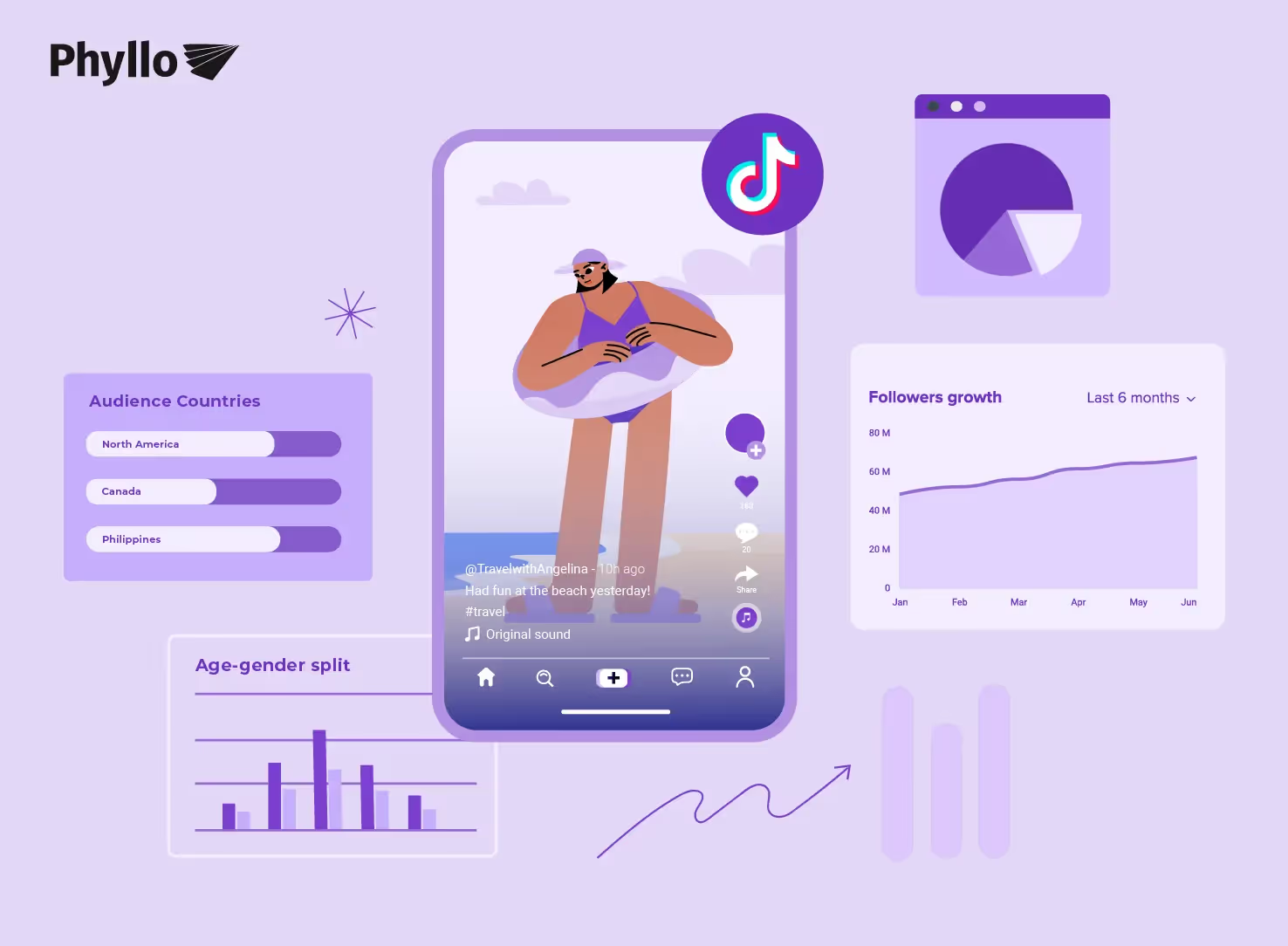Employee social media activity directly shapes how job seekers, customers, and competitors perceive your organization. From Glassdoor style reviews to viral posts, your team’s online behavior can amplify your culture or expose its flaws. Here’s how their digital footprint impacts your employer brand and why proactive management matters
Understanding Employee Social Media's Impact on Employer Branding
Your employees' social media activities significantly shape your employer brand. Every post, share, and comment from them influences public perception. When employees discuss their work experiences online, they provide an authentic view of your company culture.
Employer branding reflects how people perceive your company as a workplace, encompassing your values, culture, employee treatment, and opportunities. While companies once controlled this image, social media now empowers employees to influence it.
Platforms like LinkedIn, Instagram, and Twitter enable employees to share real stories about their work, highlighting both positives and negatives. Thus, managing your social media presence effectively is crucial. For insights on how to leverage social media for brand growth, check out our Social Listening API.
The Power of Employee Social Media Activity
Employees become powerful brand advocates through social media. Their personal networks often trust them more than official company statements. A single post about workplace culture or job satisfaction can reach numerous potential candidates.
Employee advocacy involves staff promoting their workplace on social media, creating genuine content that resonates with audiences. Sharing photos from team events or celebrating work achievements showcases your company culture authentically.
Balancing online employee presence is key. Encourage positive experiences while allowing freedom of expression. Companies like IBM and Dell succeed by offering clear social media guidelines without being overly restrictive. For more on creating effective guidelines, visit our Social Screening page.
Employee social media activity impacts more than recruitment; it influences customer views, potential partnerships, industry reputation, and talent attraction and retention. When employees feel proud of their workplace, their social media activity naturally enhances your employer brand, creating a positive cycle that attracts more talented candidates.
Key Ways Social Media Affects Your Employer Brand
Your employer brand is increasingly influenced by the social media activity of your employees. What they share, comment on, and post can significantly impact how your company is viewed by the public. Here are three key ways social media shapes your brand reputation.
1. Employee Advocacy Amplifies Social Media Employer Branding
Employees sharing positive experiences, achievements, and workplace culture on their personal social media channels serve as authentic ambassadors for your brand. Employee social media advocacy generates genuine content that resonates with potential candidates and customers, expanding your brand’s reach beyond official corporate channels.
Why it matters: Social media and employees together create relatable, trustworthy content that strengthens your employer brand.
How to leverage: Encourage employees to share their stories and participate in social media campaigns aligned with your social media strategy for employer branding.
2. Employee Social Media Engagement Boosts Internal Culture and Retention
The impact of social media in the workplace includes improving employee engagement and retention. When employees see their successes and contributions recognized on company social media, it fosters pride and loyalty. This engagement encourages employees to become passionate advocates and stay committed to the organization.
Why it matters: Highlighting employees on social media increases morale and strengthens both internal culture and external employer branding.
How to leverage: Regularly showcase employee stories, milestones, and achievements on official channels to promote a culture of recognition.
3. Employees’ Social Media Activity Can Pose Risks to Employer Branding
While employee social media can be a powerful asset, it also carries risks. Negative or inappropriate posts by employees even on personal accounts can quickly damage your employer brand. The impact of social media in the workplace means one careless post can undermine years of branding efforts.
Why it matters: Harmful employee content can erode trust, deter talent, and damage your reputation.
How to manage: Establish clear social media guidelines, provide training on responsible online behavior, and monitor public mentions to address issues promptly as part of your social media strategy for employer branding.
Leveraging Employee Social Media for Brand Growth
Smart companies transform employees into brand ambassadors on social media. Instead of controlling every post, they provide clear guidelines to help staff share confidently while safeguarding the company's reputation.
Effective social media guidelines set boundaries while allowing authentic expression. Employees should understand what company information they can share and how to discuss workplace culture, projects, and team achievements while respecting confidentiality.
Encourage positive employee engagement by:
- Sharing ready-to-use content for employees to repost
- Creating branded hashtags for team events and milestones
- Highlighting employee success stories on company channels
- Recognizing staff who contribute positively to the brand's online presence
Best practices for social sharing include training employees on professional online conduct, providing examples of appropriate content, creating a feedback system for social media questions, and regularly updating guidelines based on new platforms and trends. For more on training and resources, check out our Social Data API.
Measuring Social Media Impact on Employer Brand
To assess social media's impact on your employer brand, focus on key metrics. Compare engagement rates on content shared by employees versus corporate posts. Key metrics include:
- Share and repost rates of employee content
- Comments and interactions on culture posts
- Clickthrough rates on job postings shared by employees
- Growth in followers after employee advocacy
Analyze employee engagement by measuring:
- Number of employees sharing company content
- Frequency of workplace related posts
- Quality of interactions with potential candidates
- Use of company hashtags and mentions
To evaluate brand perception, track:
- Sentiment analysis of comments on employee posts
- Candidate feedback during interviews about social presence
- Changes in application rates after employee stories
- Ratings on Glassdoor and LinkedIn
Combine quantitative data with feedback from employees and candidates. Regular surveys and feedback sessions provide insights into how social media activities affect your employer brand's strength and appeal to potential talent. For more insights on measuring effectiveness, visit our Measurement APIs.
Future Proofing Your Employer Brand
To build a lasting employer brand on social media, develop adaptable strategies. Create content guidelines that remain relevant across platforms.
Train and support employees by offering workshops on professional social media use and brand representation. Provide tools to share authentic workplace stories while maintaining professionalism. Establish a resource hub with approved content, guidelines, and best practices.
Maintain brand consistency in all employee social media activities. Set clear rules that allow personal expression while protecting company values. Develop a consistent voice and look for employees to use in their social sharing.
Futureproofing involves building adaptable systems for new social media trends and workplace changes. Regularly review and update your social media strategy to keep it effective and relevant. For more on adapting to trends, explore our Engagement API.
Practical Implementation Steps
Begin by creating clear, simple social media guidelines. These should explain what employees can share, how to engage professionally, and which topics to avoid. Keep these policies accessible and update them regularly based on employee feedback and social media trends.
Employee advocacy programs thrive when voluntary and rewarding. Identify employees who naturally share workplace content. Provide early access to company news and events. Offer a simple way to share approved content, like a mobile app or internal platform. Recognize active participants with spotlight features or small rewards.
Establish systems to monitor your employer brand's social media presence. Use tools to identify both positive stories and potential issues early. Create a feedback loop for employees to report concerns or suggest improvements to your social media strategy.
Keep implementation practical and manageable. Start small, evaluate what works, and expand successful initiatives. The goal is to make social media engagement feel natural and beneficial for both employees and the company's brand. For more on monitoring and feedback systems, check out our Identity Verification services.
Conclusion
Employees and social media are deeply intertwined with modern employer branding. Empowering employees to be brand advocates, celebrating their contributions, and managing risks carefully, organizations can turn employee social media into a valuable asset. A thoughtful social media strategy for employer branding helps maximize benefits and protect your reputation in today’s connected world.
FAQs:
1. How does employee social media activity impact our employer brand?
Employee social media posts can either strengthen or damage your employer brand. Positive posts showcase your company culture and values, while negative or inappropriate content can harm your reputation.
2. Can we set rules about what employees post on social media?
Yes, employers can establish social media policies that outline acceptable behavior online, especially when it relates to the company. These policies help protect your brand while respecting employee privacy.
3. Should we monitor employees’ social media accounts?
It’s common to review publicly available social media content if it affects the workplace or company reputation. However, monitoring should be done ethically and with respect for privacy.
4. What kinds of employee social media posts are risky for our brand?
Posts involving offensive language, harassment, sharing confidential information, or behavior that conflicts with company values can pose risks to your employer brand.
5. How can we encourage employees to use social media positively?
Encourage employees to share their work achievements, company events, and positive experiences. Providing guidelines and training helps align their posts with your social media employer branding goals.










.avif)
.avif)
.avif)
.avif)
.avif)


